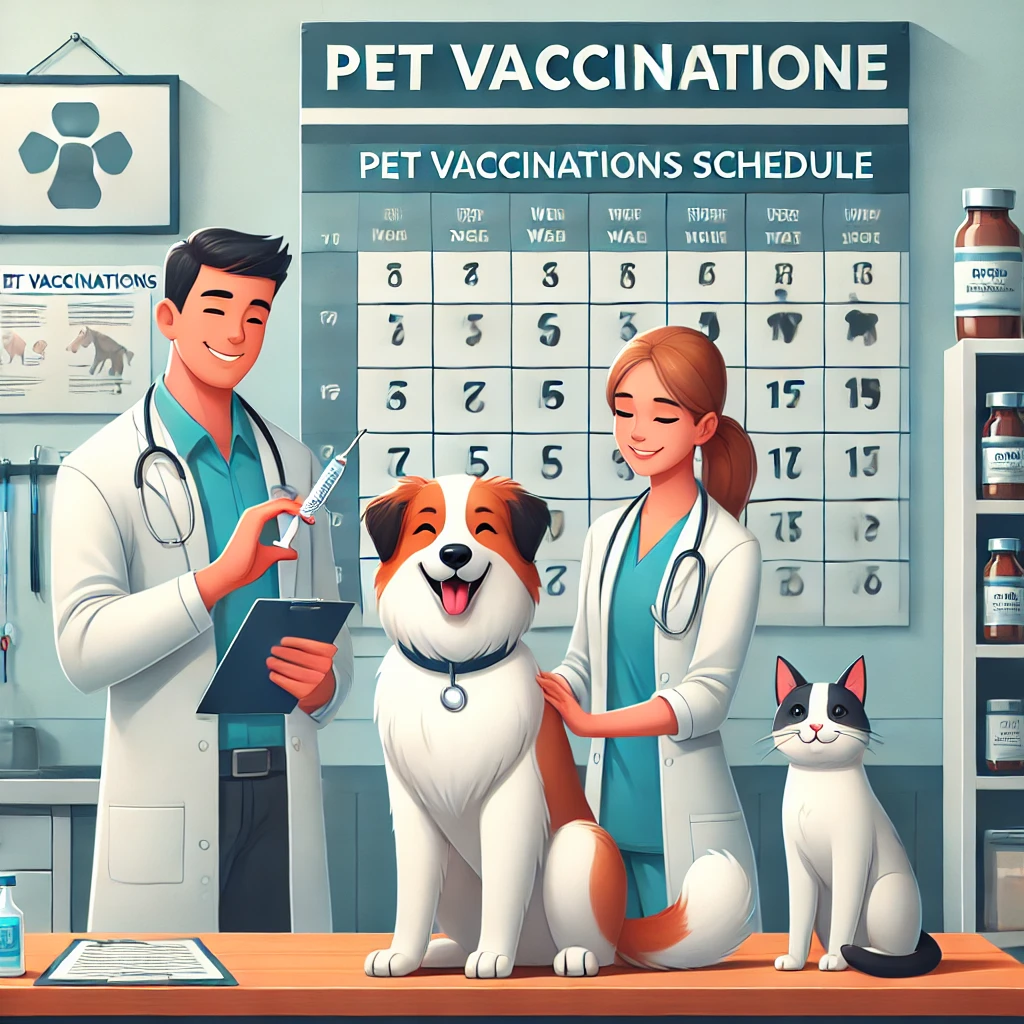
Pet Vaccinations Schedule
Ensuring your furry friend’s health and happiness starts with a solid foundation: vaccinations. Vaccines protect your pet from serious illnesses, and sticking to a proper pet vaccinations schedule can make all the difference in their long-term well-being.
Why Are Pet Vaccinations Important?
Vaccinations are crucial for:
- Preventing Diseases: Vaccines help shield your pet from life-threatening diseases like rabies, parvovirus, and distemper.
- Protecting Public Health: Vaccinating pets can prevent the spread of zoonotic diseases (those that can transfer from animals to humans).
- Meeting Legal Requirements: Many regions require proof of certain vaccinations, such as rabies, for licensing and travel.
How Do Pet Vaccines Work?
Vaccines introduce a harmless version of a pathogen to your pet’s immune system. This primes their body to recognize and fight the real disease if they’re ever exposed. It’s a simple and effective way to ensure your pet’s health and safety.
Understanding the Pet Vaccinations Schedule
Following a consistent pet vaccinations schedule is vital. Here’s a general guide for dogs and cats:
For Dogs:
- 6-8 Weeks: Distemper, parvovirus (often combined in a single vaccine, called DHPP).
- 10-12 Weeks: DHPP booster, leptospirosis, bordetella (kennel cough).
- 14-16 Weeks: DHPP final booster, rabies vaccine.
- 1 Year: Annual boosters for DHPP and rabies, plus any lifestyle-specific vaccines like canine influenza or Lyme disease.
For Cats:
- 6-8 Weeks: FVRCP (feline viral rhinotracheitis, calicivirus, panleukopenia).
- 10-12 Weeks: FVRCP booster, feline leukemia (if recommended).
- 14-16 Weeks: FVRCP final booster, rabies vaccine.
- 1 Year: Annual boosters for FVRCP and rabies.
Types of Pet Vaccines
Vaccines fall into two categories:
- Core Vaccines: These are essential for all pets, regardless of lifestyle. Examples include rabies, distemper, and parvovirus for dogs, and FVRCP for cats.
- Non-Core Vaccines: These are optional and based on your pet’s environment and lifestyle, such as Lyme disease or bordetella for dogs and feline leukemia for cats.
Tips for Staying on Track with Pet Vaccinations
- Set Reminders: Use a calendar or smartphone app to track upcoming vaccination dates.
- Keep Records: Maintain a file of your pet’s vaccination history for vet visits and travel.
- Communicate with Your Vet: Regular check-ups are the perfect opportunity to discuss your pet’s vaccination needs.
Myths About Pet Vaccinations
- “Indoor pets don’t need vaccines.”: Even indoor pets can be exposed to diseases through open windows, other pets, or trips outside.
- “Vaccines cause illnesses.”: While mild side effects like soreness or lethargy can occur, severe reactions are rare, and the benefits far outweigh the risks.
A well-planned pet vaccinations schedule is a cornerstone of responsible pet ownership. It’s not just about compliance; it’s about giving your beloved companion the best chance at a long, healthy life.
At PetPulseDaily, we’re here to guide you through every step of your pet care journey. Share your vaccination tips or stories in the comments below — let’s keep our pets safe and thriving together!
